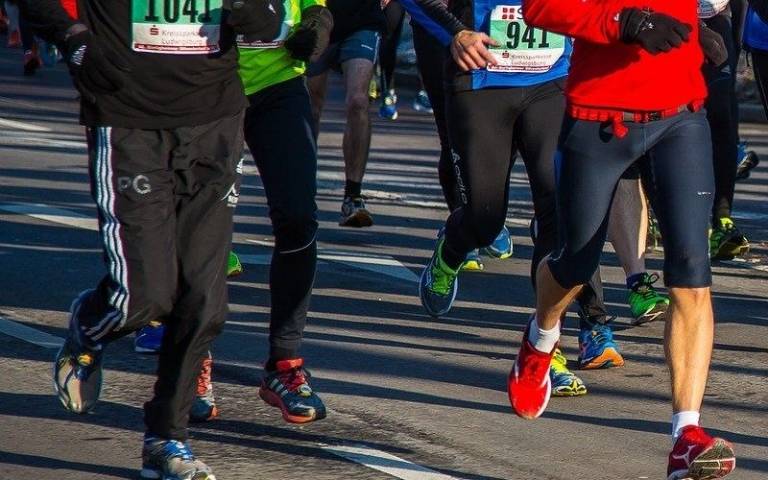Run For Your Life!
"As clinicians are meeting with patients in the new year, making a goal-oriented exercise training recommendation—such as signing up for a marathon or fun-run—may be a good motivator for our patients to keep active."
"Our study highlights the importance of lifestyle modifications to slow the risks associated with aging, especially as it appears to never be too late as evidenced by our older, slower runners."
"Our study shows it is possible to reverse the consequences of aging on our blood vessels with real-world exercise in just six months. These benefits were observed in overall healthy individuals across a broad age range and their marathon times are suggestive of achievable exercise training in novice participants."
"Almost everyone benefited. And those people whose arteries needed the most help benefited the most [through the study trials]."
Dr. Charlotte Manisty (UCL Institute of Cardiovascular Science & Barts Heart Centre)
 |
| University College London |
Arteries carry oxygenated blood from the heart. When the arteries are healthy and pliable they expand and contract as blood pulses through them at a steady flow. They become compromised with age, beginning to stiffen and blood starts to crowd against the inflexible walls of the blood vessels, causing blood pressure to rise and organs requiring an even, gentle blood stream, such a the brain can be deleteriously affected.
There has been past research hinting that exercise could have the potential to alter arterial stiffening related to encroaching age. Older athletes as an example, tend to have relatively supple arteries. What hasn't been clear is whether sedentary people, beginning to exercise, can still improve the health of their arteries. The new study, published in The Journal of the American College of Cardiology, was the result of researchers at University College London setting out to answer that question.
 |
| Getty Images |
None of the group of participants who had completed health and fitness tests and a scan of their aortas, showed any signs of heart disease or other serious health problems. Most of the runners began preferred marathon-training programs, jogging several times weekly. Some experienced injuries or other health concerns and saw fit to drop out, but ultimately, 136 men and women completed the race, their average time of 4.5 hours for the men and 5.5 hours for the women.
Post-race they returned to the laboratory to have their initial pre-race tests repeated. Their aortas proved more flexible, their arteries appearing to have shed the equivalent of almost four years of gradual stiffening, in functional terms. Older male runners and those whose finishing times had been slower, turned out to show the mos marked improvements, which did not depend on changes in fitness or weight which had been negligible throughout training and the actual run.
The only issue that had impacted on the beneficial outcome appears to be that they all had maintained their training and had gone on to complete the race. "The benefits of exercise are undeniable.
Keeping active reduces your risk of having a heart attack or stroke and cuts your chances of an early death. As the old mantra goes, 'If exercise were a pill, it would be hailed as a wonder drug'", said Professor Metin Avkiran of the British Heart Foundation (BHF), which funded the study,
Over the course of every week, adults should do a minimum of either:
People should also do strengthening activities - such as push-ups, sit-ups or lifting and carrying - at least two times a week to give muscles a good workout.
- 150 minutes moderate-intensity exercise, such as brisk walking, doubles tennis or cycling
- 75 minutes vigorous exercise, such as running, football or rugby
 |
| Getty Images Lead researcher Dr Charlotte Manisty said: "People with known heart
disease or other medical conditions should speak to their doctor first. "But for most people, the benefits of taking up exercise far outweigh any risk." |
Labels: Exercise, Health, Heart Health, Research, Running, Study

0 Comments:
Post a Comment
<< Home